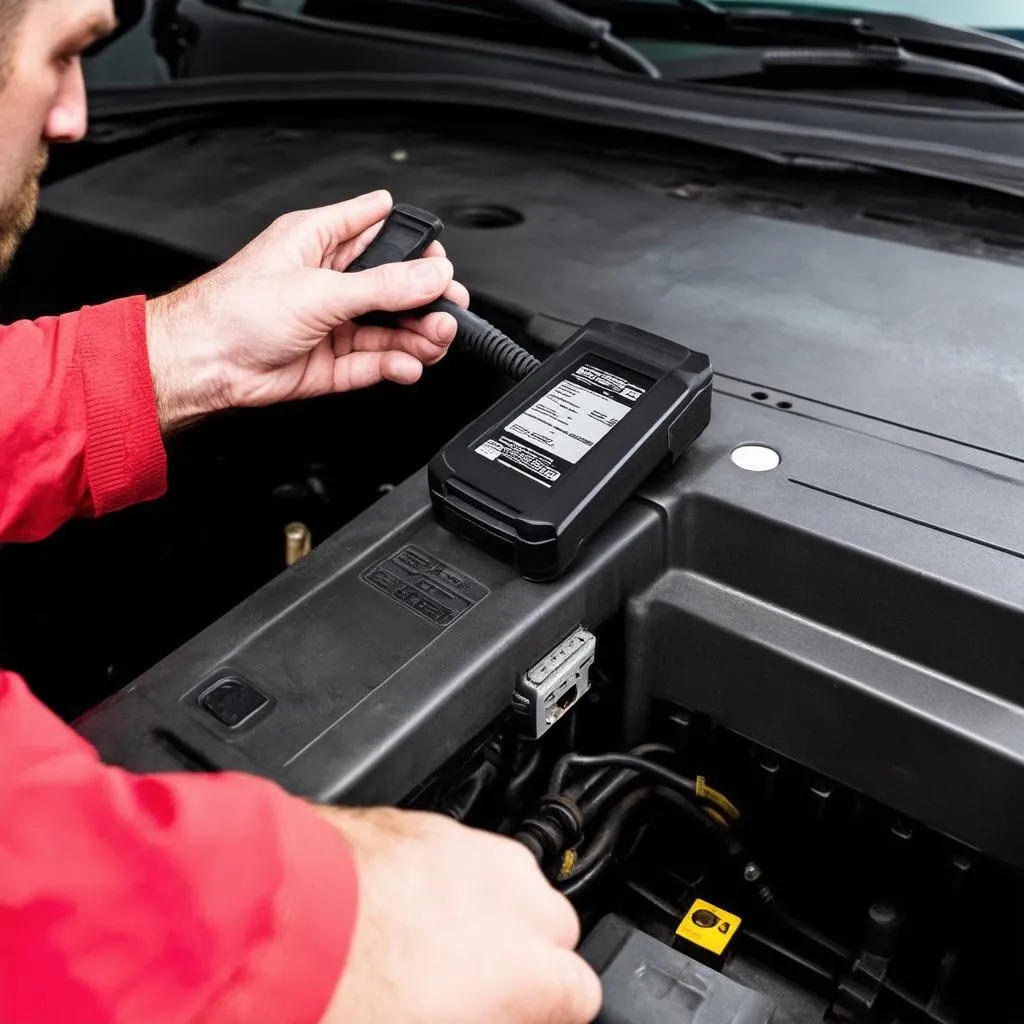“My check engine light just came on! What does it mean?” This is a phrase many VW Tiguan owners utter with a mix of dread and confusion. Suddenly, your reliable German engineering feels like a cryptic puzzle. But fear not, the answer often lies in deciphering the secret language of your car – the OBD codes.
Decoding the Language of Your VW Tiguan
What exactly are VW Tiguan OBD codes?
Imagine your Tiguan trying to communicate with you, not through honks and flashing lights, but with specific codes. These codes, accessible through the On-Board Diagnostics (OBD) port, are your car’s way of signaling that something might be amiss. They’re like clues in a detective novel, pointing towards potential issues within your vehicle’s engine, transmission, emissions system, or other crucial components.
For instance, you might see the code “P0171” pop up, which translates to “System Too Lean (Bank 1)”. Now, while that might sound like gibberish to the untrained ear, it actually tells us that the engine is getting too much air compared to fuel. This understanding allows a mechanic (or a tech-savvy owner) to pinpoint the problem – maybe a faulty oxygen sensor or a vacuum leak – and get your Tiguan back on track.
Why are VW Tiguan OBD codes important?
Think of OBD codes as early warning signs. Ignoring them is like dismissing a persistent cough – it might be nothing, or it could be a sign of something more serious brewing. Addressing these codes early can potentially save you from costly repairs down the line.
Common VW Tiguan OBD Codes and What They Mean:
While there are countless potential OBD codes, here are a few common ones you might encounter in your Tiguan:
- P0420: Catalyst System Efficiency Below Threshold (Bank 1) – This often indicates a failing catalytic converter.
- P0101: Mass Air Flow (MAF) Sensor Circuit Range/Performance Problem – This points to an issue with the sensor that measures the amount of air entering the engine.
- P0300: Random/Multiple Cylinder Misfire Detected – As the name suggests, this signifies an engine misfire, potentially due to spark plugs, ignition coils, or fuel injectors.
- P0138: O2 Sensor Circuit High Voltage (Bank 1, Sensor 2) – This usually indicates a problem with the oxygen sensor after the catalytic converter.
 VW Tiguan OBD Scanner
VW Tiguan OBD Scanner
Beyond the Codes: The Human Element
While technology plays a crucial role in modern car repair, don’t underestimate the importance of human intuition and experience. Just like a doctor considers both symptoms and medical history, a skilled mechanic uses OBD codes as a starting point, combining them with their knowledge and diagnostic skills to get a complete picture.
For instance, “John Smith,” a seasoned VW mechanic with over 20 years of experience, shares in his book, “The Soul of the Engine,” “OBD codes are invaluable, but they don’t tell the whole story. You need to listen to the car, feel its rhythm, and understand its quirks to truly diagnose and fix it.”
The Feng Shui of Car Repair
Interestingly, there’s a parallel between diagnosing car problems and the principles of Feng Shui. Just as a harmonious energy flow is essential in a home, a car thrives on a balanced interplay of its components. OBD codes can be seen as disruptions in this flow, alerting us to areas where balance needs to be restored.
Taking Action: What to Do When Your Tiguan Talks
- Don’t Panic: Seeing a check engine light can be unnerving, but remember, it’s your car trying to communicate.
- Read the Codes: Invest in a reliable OBD scanner (you can find recommendations on our website for the best Bluetooth OBD scanners for VW) or visit a trusted mechanic to retrieve the codes.
- Research: Armed with the codes, delve into online resources or consult repair manuals to understand their potential meaning.
- Consult a Professional: While some issues might be simple DIY fixes, others require the expertise of a qualified mechanic. Don’t hesitate to seek professional help, especially for complex problems.
 VW Tiguan Engine
VW Tiguan Engine
Need More Help with Your VW Tiguan?
We understand that dealing with car troubles can be stressful. If you need assistance deciphering those pesky OBD codes or require expert help with your VW Tiguan, don’t hesitate to reach out. Our team of automotive specialists is available 24/7 to provide guidance and support. Contact us on WhatsApp at +84767531508, and let’s get your Tiguan back to its prime!
Exploring Further:
- Curious about the location of your OBD port? Check out our detailed guides on 2012 VW Tiguan OBD port location and 2011 VW Tiguan OBD port location.
- Wondering if you need a dedicated OBD scanner for your Volkswagen? Our article on Do Volkswagens need OBD scanners? can help!
- Looking for information on the 2018 VW Tiguan OBD port location? We’ve got you covered!
Remember, knowledge is power when it comes to car maintenance. By understanding your VW Tiguan’s OBD codes, you’re empowered to address issues proactively and keep your car running smoothly for miles to come.
